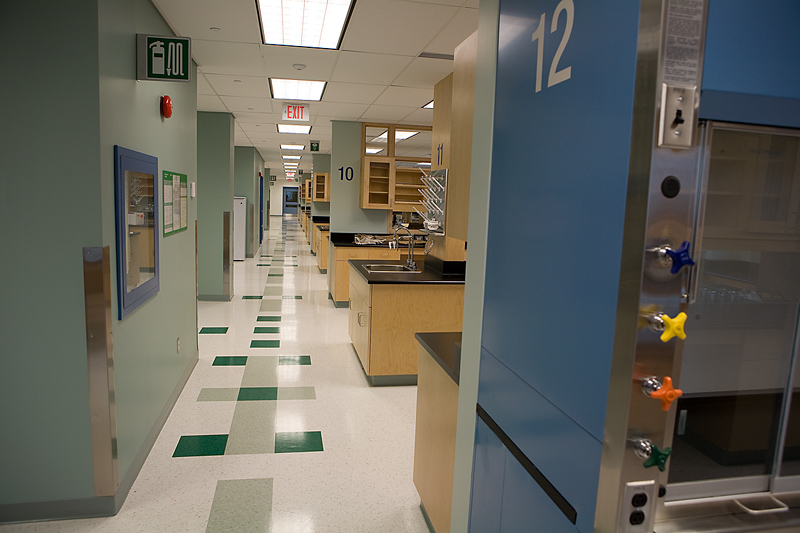
THURSDAY, Oct. 23, 2014 (HealthDay News) — A new test that scans all of a person’s genes to pinpoint a single mutation can help identify rare genetic disorders in children, a new study shows.
Audrey Lapidus and her husband grew concerned when their son Calvin didn’t roll over or crawl by the time he was 10 months old. He also had chronic digestive problems. A series of tests didn’t provide any answers.
In desperation, Calvin’s parents agreed to have their son become the first person to undergo a powerful new test called exome sequencing at the University of California, Los Angeles.
DNA from Calvin and his parents was placed in a machine that rapidly scanned and compared the three family members’ genomes. The machine identified a mutation on the boy’s 18th chromosome. He was diagnosed with Pitt-Hopkins Syndrome, a rare genetic disorder that affects only 250 children worldwide, according to researchers.
The diagnosis meant that Calvin’s parents could start seeking the best treatment for their son, according to the study published online Oct. 18 in the Journal of the American Medical Association.
“Our study is the first to show that sequencing a child’s genome together with his or her parents’ dramatically improves geneticists’ ability to reach a firm diagnosis in rare disorders,” corresponding author Dr. Stan Nelson, vice chair of human genetics and a professor of pathology and laboratory medicine at David Geffen School of Medicine at UCLA, said in a university news release.
Calvin was the first of more than 800 children included in the study.
“We discovered a genetic cause for the conditions affecting 40 percent of the hundreds of young children who come to UCLA for exome sequencing due to developmental delays or intellectual disabilities,” Nelson said.
The findings make a strong case for routine clinical use of exome sequencing in efforts to diagnose children with rare genetic disorders, the researchers said.
Unlike earlier tests that assess one gene at a time, exome sequencing rapidly surveys all of a person’s 20,000 genes in order to identify a single mutation. The test focuses on the exome, which are protein-encoding parts of genes that account for only 1 percent of DNA but nearly 85 percent of errors known to cause diseases.
With preauthorization, many insurers cover the cost of testing a child and both parents. If insurance doesn’t cover the test, the out-of-pocket cost is $6,650, according to the researchers. Results typically take under eight weeks, the researchers said.
“All families deserve a clear diagnosis of their child’s condition,” Dr. Wayne Grody, director of the UCLA Clinical Genomics Center and a professor of pathology, human genetics and pediatrics at the David Geffen School of Medicine at UCLA and Mattel Children’s Hospital UCLA, said in the news release.
“Exome sequencing plays an important role in identifying the precise cause of a child’s illness. This is immediately useful to families and physicians in understanding how the disease occurred, preventing unnecessary testing, and developing the best strategies to treat it,” Grody said.
The test can also be helpful in other ways.
“Many parents of a child with a genetic disorder postpone getting pregnant for fear of having a child with the same disease,” Naghmeh Dorrani, a genetic counselor at UCLA, said in the news release. “Exome sequencing can ease this concern by helping us to identify the risk of recurrence and offer parents appropriate prenatal testing options.”
More information
The U.S. National Human Genome Research Institute has more about genetic disorders.
Copyright © 2026 HealthDay. All rights reserved.

